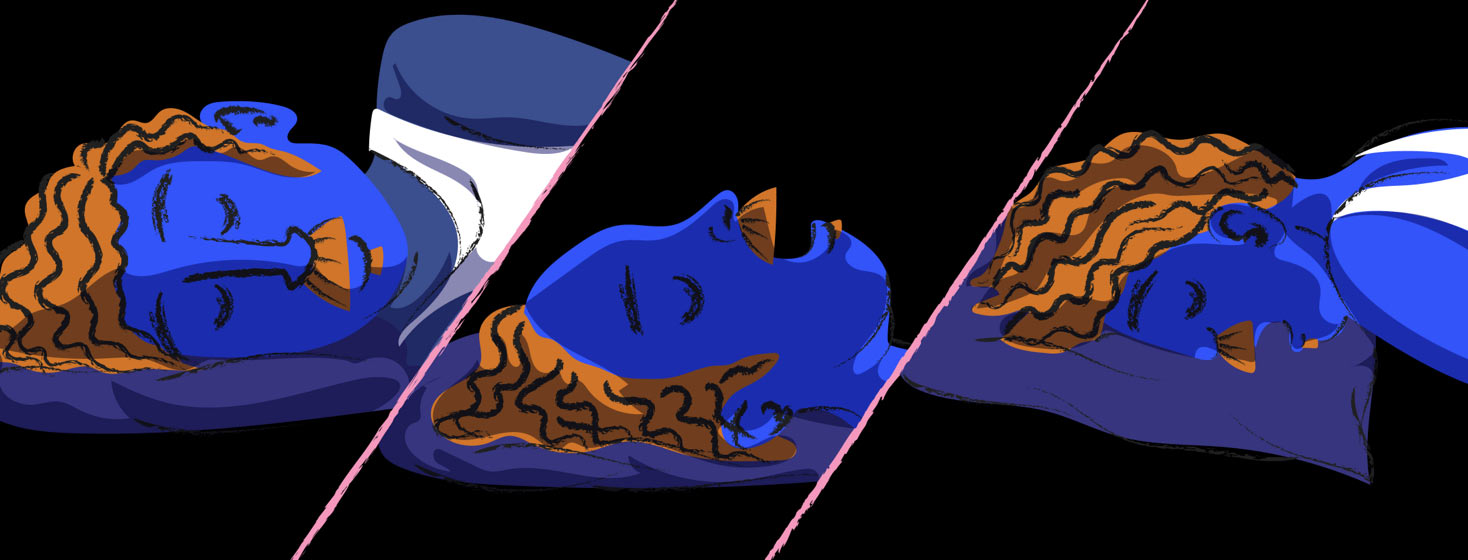Asthma And Sleeping Positions: What's The Link?
Those who have asthma can attest that triggers happen at any time of the day, but for many asthmatics, their respiratory condition can be especially challenging at night. Known as nocturnal asthma, these asthmatics tend to experience worse symptoms at night in the form of:1
- Coughing fits
- Wheezing
- Shortness of breath
- Chest tightness
- Diminished performance and alertness during the day as a result of asthma symptoms impacting sleep
There are multiple factors that contribute to nocturnal asthma, and studies have been done to research the influence of different sleeping positions on nocturnal asthma. Does the position we fall asleep in determine how our asthma is affected during the night?
Asthma and sleeping positions
What most of the current research concludes is that the effectiveness of certain sleeping positions over others may depend on the individual and their asthma severity. In my experience, falling asleep on my left side tends to make my airways feel more open, but trying to sleep on my back is extremely uncomfortable.
Contrary to my own sleeping patterns, research suggests that some asthmatics do experience fewer symptoms of nocturnal asthma while on their backs.2 There’s also evidence that lying on your side or on your stomach can possibly constrict your lung function and induce nocturnal asthma.1
Since medical researchers are still working to understand the true causation of nocturnal asthma, there may also be other factors involved.
Other nocturnal asthma triggers
Although the causes of nocturnal asthma may be at least partially linked to sleeping positions, nighttime asthma symptoms may also be influenced by:1,3
- Allergen exposure. House dust mites, pet dander, and exposure to other allergens either a few hours at bedtime or while in bed could trigger asthma symptoms
- Natural body processes. While at rest, muscles relax, and the upper airway narrows. This may increase the potential of having breathing issues at night.
- Hormones. Some studies suggest that a decrease in cortisol levels at night may also constrict the airway.
- Cold air. Although sleeping in a cool room may feel more comfortable, the dry air with less moisture can make asthmatics more susceptible to symptoms.
- Not following a daytime treatment plan. Managing asthma can be a full-time job. If steps aren’t taken during the day to manage symptoms, it can make asthmatics more vulnerable during sleep.
It can be hard to pinpoint whether asthma and sleeping positions are directly related or if these other factors also play into nighttime asthma attacks. Some trial and error may need to happen before asthmatics can narrow down and begin to address the source.
A lifetime of sleeping with asthma
Having had asthma since I was a year old, I’ve experienced nights when my asthma was not managed and I woke up multiple times wheezing. While I’m able to fall asleep easier on my side, sometimes I will wake up on my back snoring because I’m having airway issues. It’s a constant battle to not only get comfortable but stay comfortable all night with asthma.
After years of finding the right medication to manage my asthma during the day, understanding the allergens that can trigger me at night, and trying different positions to see what “feels” right, I’m able to get good, restful sleep. However, the reminder is always there that even though I rarely experience nighttime asthma, there’s no off switch.
Do you experience nocturnal asthma? Have you found a sleeping position that helps with your asthma symptoms? Share in the comments below!

Join the conversation